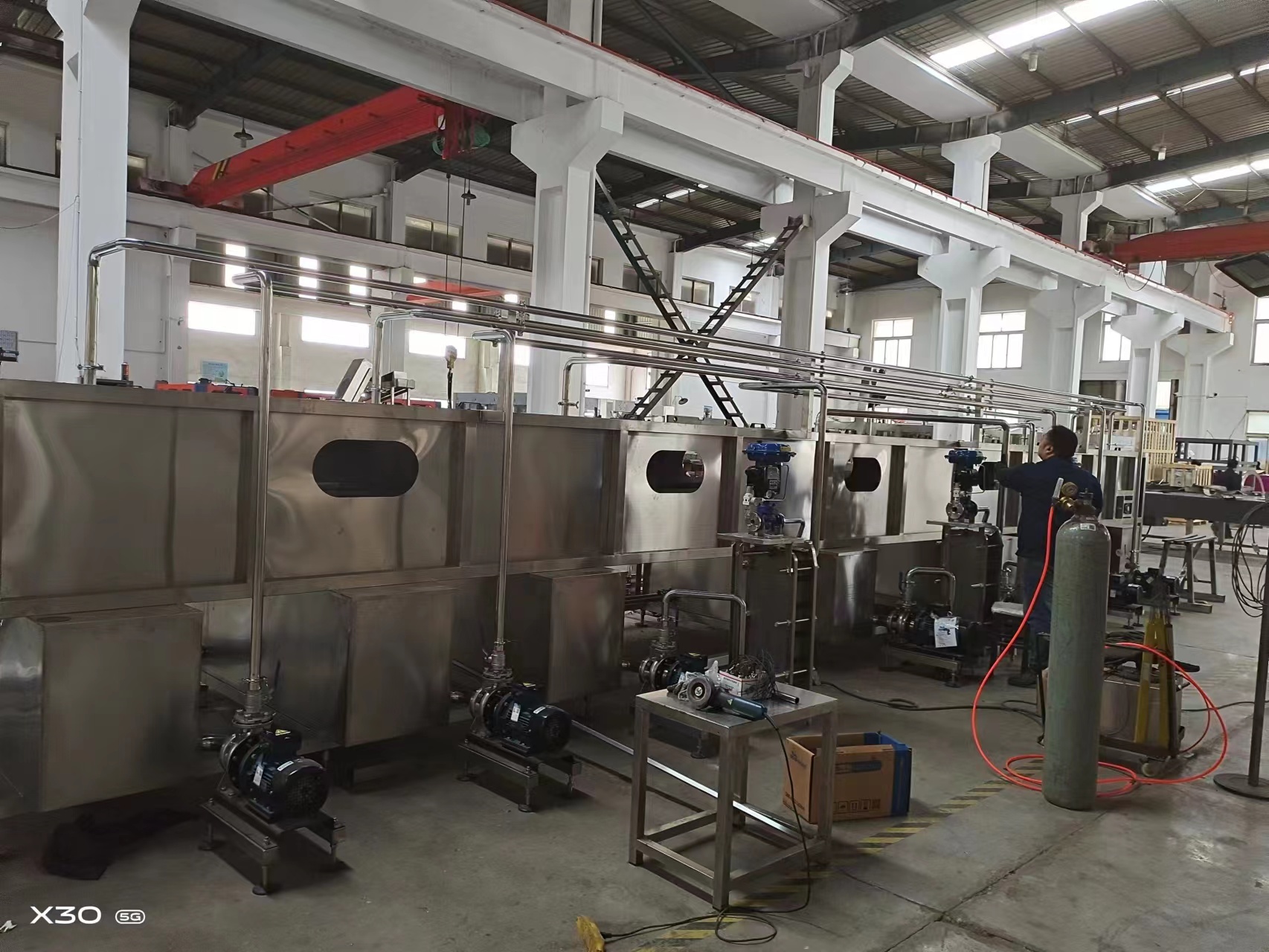A tunnel pasteurizer for beer is a type of heat treatment equipment used to pasteurize beer in bottles or cans. This process ensures the microbiological stability and safety of the beer, extending its shelf life without compromising its flavor or quality.
How Tunnel Pasteurizers Work
Loading:
Bottles or cans of beer are placed on a conveyor belt that transports them through the pasteurizer
Preheating:
The containers first pass through a preheating zone where they are gradually heated using recycled water. This step helps to reduce thermal shock and prepare the beer for the pasteurization process.
Pasteurization:
In the central pasteurization zone, the beer is heated to a specific temperature (typically around 60-70°C or 140-158°F) and held for a certain period. The precise temperature and time depend on the beer type and desired pasteurization level.
Cooling:
After pasteurization, the beer passes through a cooling zone where it is gradually cooled back down to a safe handling temperature using chilled water. This step prevents thermal shock and preserves the quality of the beer.
Unloading:
The pasteurized beer is then unloaded from the tunnel pasteurizer, ready for packaging and distribution.
Key Components
Conveyor System:
Transports the bottles or cans through the different temperature zones.
Heating and Cooling Zones:
Sections of the tunnel where the beer is gradually heated and cooled.
Water Spraying System:
Sprays water at different temperatures to achieve the desired heating and cooling effects.
Temperature Control System:
Monitors and controls the temperature to ensure precise pasteurization.
Pumps and Heat Exchangers:
Circulate and heat or cool the water used in the process.
Benefits Of Tunnel Pasteurizers
Microbiological Stability:
Eliminates harmful microorganisms, ensuring the safety and extending the shelf life of the beer.
Consistency:
Provides consistent pasteurization for large batches, maintaining product quality.
Scalability:
Suitable for high-volume production, making it ideal for large breweries.
Energy Efficiency:
Modern tunnel pasteurizers are designed to be energy-efficient, often recycling water and heat.
Versatility:
Can be used for various container types and sizes, including bottles and cans.





























